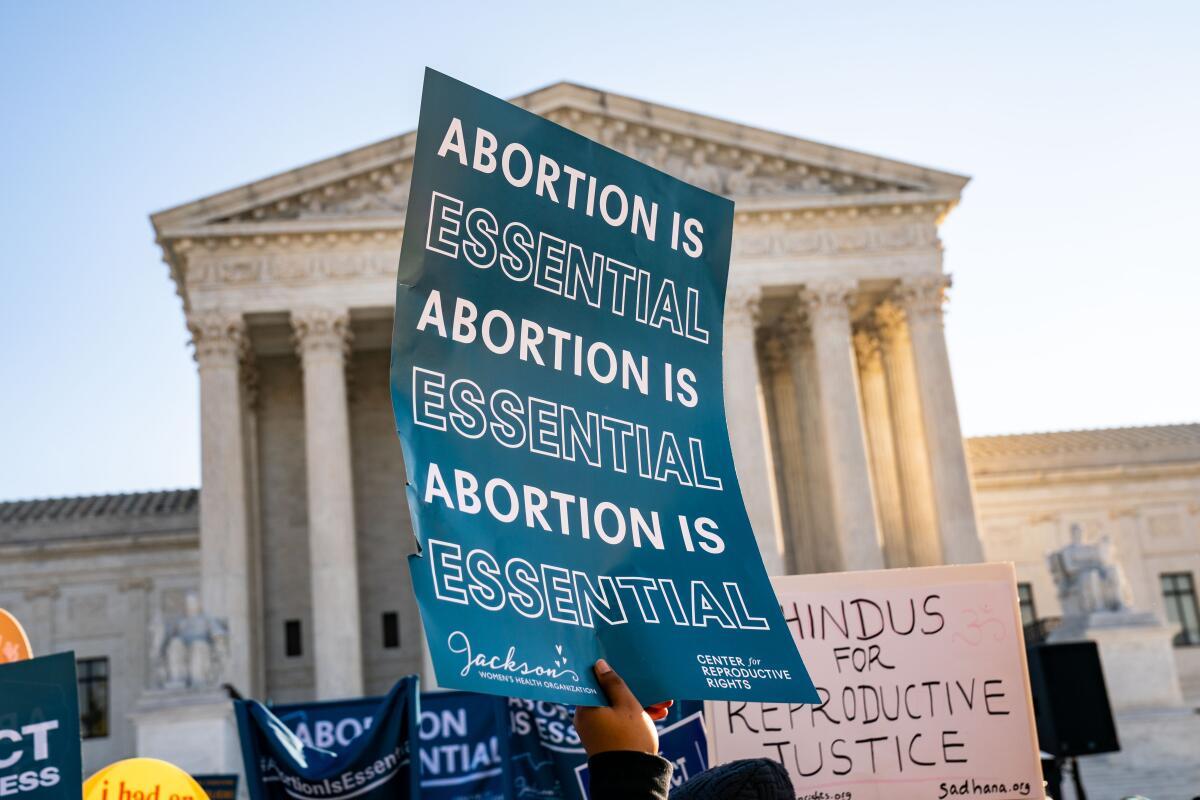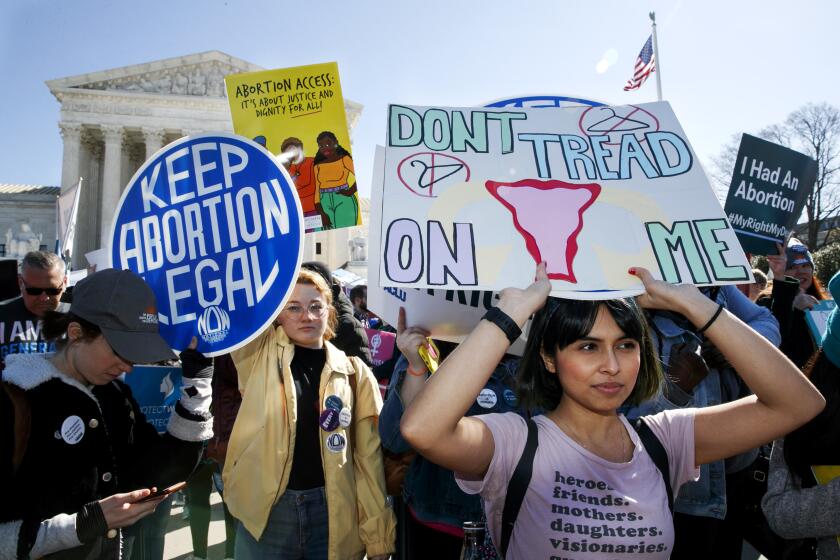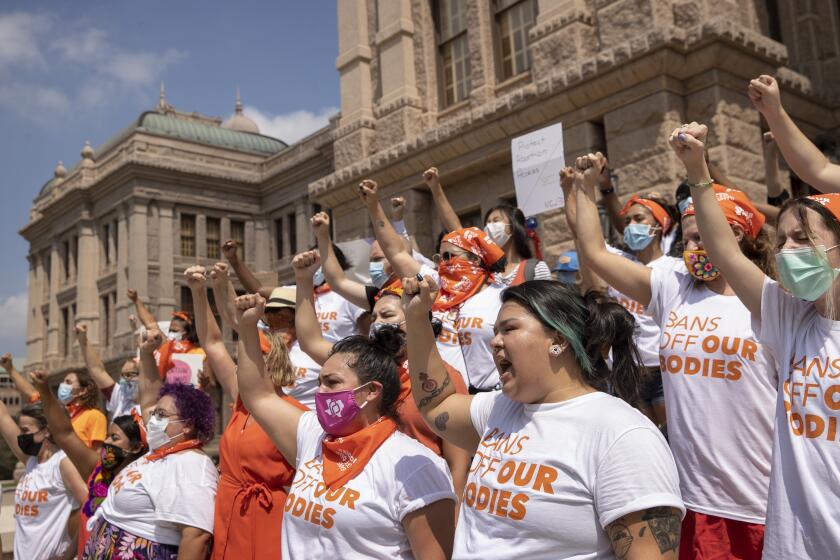Editorial: The Supreme Court can’t pretend that overturning Roe vs. Wade would be anything but political

- Share via
The Supreme Court heard arguments Wednesday in the most important case on abortion rights in three decades. And by the direction of the comments and questions, the court could be headed toward a major, if misguided and dangerous, scaling back of constitutional protections under Roe vs. Wade.
The state of Mississippi is asking the Supreme Court to either overturn the landmark 1973 ruling on abortion or allow states to pass pre-viability abortion bans. On Wednesday, conservative justices seemed to be looking for ways to scale back those rights without making it seem political.
What would be wrong with a 15-week ban on abortion, Chief Justice John G. Roberts Jr. asked Julie Rikelman of the Center for Reproductive Rights, representing the sole abortion clinic in Mississippi. “Why is 15 weeks not enough time?”
Justice Amy Coney Barrett wanted to know why the existence of safe haven laws that allow women to relinquish their newborn babies without questions wasn’t enough protection for women who would be burdened by parenthood.
The Supreme Court is hearing a case asking it to overturn Roe vs. Wade, but it should reject it and continue to protect access to abortion.
As abortion rights advocates have pointed out time and again, 15 weeks is not enough time if you’re poor and you’ve been trying to get the money together to afford an abortion. It’s not enough time to know if a fetus has severe health problems or the pregnancy is endangering the life of the mother. And a safe haven law is not a substitute for a woman losing her right to control her body and forcing her to bear a child.
But these questions miss the bigger point, which is that the right to an abortion up to the point of viability outside the womb derives from the right to liberty in the 14th Amendment. That was first determined in the landmark Roe vs. Wade ruling in 1973 and reaffirmed in Planned Parenthood vs. Casey in 1992.
Let’s be clear about one thing: If the justices overturn the precedents in those cases or take away the right to an abortion up to the point of viability it will be purely a political decision. Not one thing has changed in medicine or civil rights or the Constitution in recent decades that would suggest that either of those rulings be overturned. And no justice suggested there was one.
Coming up with workarounds — like adoption — are just smokescreens to dismiss nearly 50 years of precedent for ideological reasons —and doing so would create a “stench” in the public’s perception “that the Constitution and its reading are just political acts,” said Justice Sonia Sotomayor.
This isn’t like Brown vs. Board of Education overturning the “separate but equal” doctrine of Plessy vs. Ferguson in 1954 to set the stage for racial equality. This is like overturning Brown vs. Board of Education and resegregating the schools.
The Supreme Court justices seemed to indicate they have problems with the Texas abortion law as well.
On Wednesday, Justice Brett M. Kavanaugh summed up the argument on behalf of the state of Mississippi from Scott G. Stewart, its solicitor general, as urging the court to return to being neutral on abortion, because the Constitution says nothing outright on abortion “rather than continuing to pick sides on that issue.”
Pick sides? This isn’t the Super Bowl. This is a case that asks the court to overturn not one but two landmark precedents that affirmed the Constitution was anything but neutral on a woman’s right to bodily autonomy.
Rikelman responded to that by saying the Constitution provides a guarantee of liberty. “Women have an equal right to liberty under the Constitution, Your Honor, and if they’re not able to make this decision, if states can take control of women’s bodies and force them to endure months of pregnancy and childbirth, then they will never have equal status under the Constitution.”
Handing that decision off to the states is like handing over the decision regarding women’s autonomy to angry mobs — as Texas attempted to do with a law that deputizes private citizens to sue anyone who helps a woman get an abortion or the ones that would institute bans on abortion at six weeks when few women even know they are pregnant. The court is expected to rule on the constitutionality of the Texas law soon.
The conservative justices have no reason — other than their own personal political beliefs — to turn over the regulation of a fundamental human right to the whims of state legislatures and turn back the clock on a woman’s right to control her own body.
More to Read
A cure for the common opinion
Get thought-provoking perspectives with our weekly newsletter.
You may occasionally receive promotional content from the Los Angeles Times.












